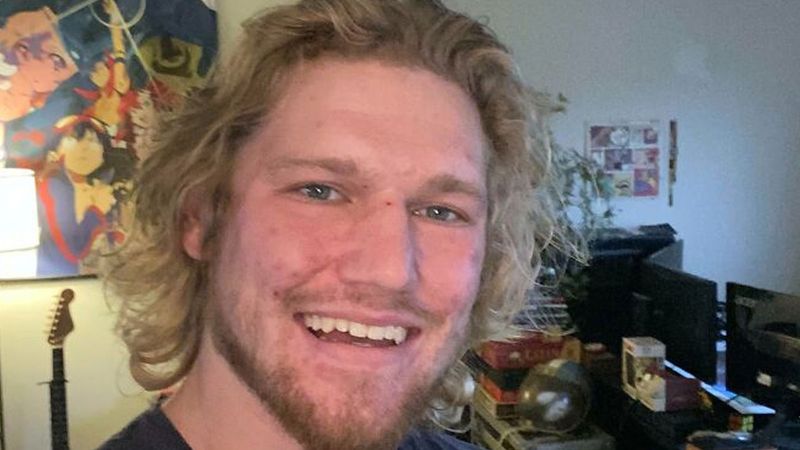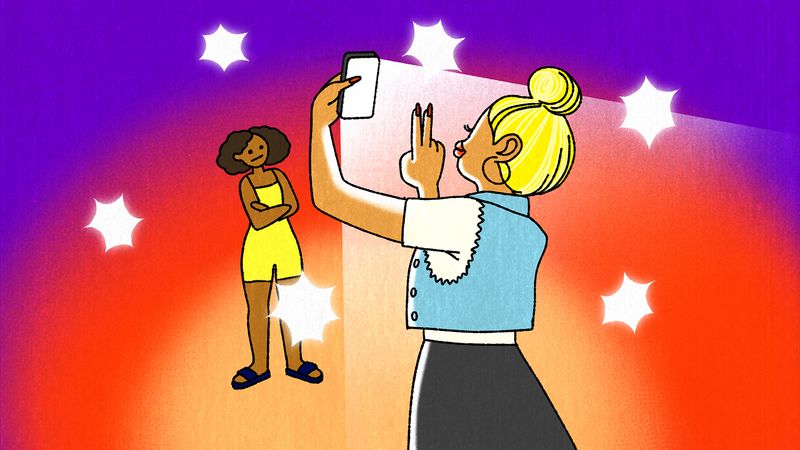How to Spot Selfishness: 18 Clear Signs You’re Dealing with a Deeply Self-Centered Person
You know the type. Every conversation somehow circles back to them. Your needs? Barely register. And no matter how much you give, it never feels like enough. Here’s the thing: selfish people aren’t always loud and obvious about it. Sometimes they’re charming, subtle, and even convincing at first.
But if you pay attention, the red flags are impossible to miss. So, let’s get real: we all know at least one person who just can’t help but make everything about themselves.
The good news? Spotting the signs means you can protect your peace, set better boundaries, and spend your energy on people who actually appreciate you.
Honestly, it’s a little empowering once you see just how predictable some of these moves are. Ready to call it like you see it? Let’s break down the signals you’re dealing with someone who’s way too self-centered.
1. Conversations That Always Circle Back

Ever tried sharing a story, only for it to get hijacked? That’s the classic move—suddenly it’s all about their wild weekend or epic vacation, and your news gets lost in the shuffle. It’s like they’re allergic to not being the center of attention, even if you’re the one who started the conversation.
You can’t help but notice the pattern: your anecdotes somehow become stepping stones for their monologues. Sometimes it’s subtle, like a sly “Oh, that reminds me of…” Other times, it’s a full-on takeover. Before you know it, you’re the quiet sidekick in your own story.
Honestly, it gets old fast. You begin to wonder why you even bother opening up. If you’re always listening but never heard, that’s a giant red flag. Conversations are a two-way street, not a detour to someone else’s ego.
2. Questions That Don’t Really Care

If you’ve ever had someone ask, “How are you?” only to immediately turn the spotlight back on themselves, you know what I’m talking about. It’s the conversational equivalent of waving at someone and then walking right past them.
These surface-level check-ins are never about you; they’re just a pit stop before they get back to what really matters—their life. Sometimes, you can practically see their eyes glaze over as you answer.
It’s not that they’re incapable of asking, they just don’t care about the answer unless it connects back to their world. So, if you’re always left feeling like your words bounce off a wall, trust that feeling. True friends ask and actually listen.
3. The Never-Ending Applause Line

You finally land that promotion or finish a big project, and their response? A bored “Cool.” But let them land a tiny win, and suddenly it’s confetti, speeches, and champagne (well, figuratively).
They’re on a permanent hunt for validation, craving praise for even the smallest effort. Meanwhile, your successes barely register—unless they can spin it into a compliment for themselves. That’s the secret: their need for admiration always outweighs their ability to give it.
Ever feel like you’re clapping alone at your own celebration? With self-centered people, applause is a one-way street. If you’re always expected to cheer and never get a cheer back, recognize the imbalance. You deserve hype, too!
4. All Take, Rarely Give

You know those friends who are always asking for favors but disappear when you need help? That’s their entire vibe. They treat relationships like an all-you-can-eat buffet, but somehow forget to bring anything to the table.
Whether it’s time, rides, or emotional support—they’re always taking, but rarely seen giving back. The energy drain is real. Over time, you start feeling more like a personal assistant than a friend.
Healthy relationships are about give and take. If you’re feeling like an ATM or a free Uber driver, it’s time to question what you’re really getting out of this connection. Don’t let them run up the tab on your kindness.
5. Boundary Bulldozers

Boundaries? What boundaries? With self-centered people, your limits are just speed bumps in their quest for what they want. If you say ‘no,’ prepare for a guilt trip or a manipulation marathon.
It’s not just about big asks—it’s the little things, too. Borrowing without asking, inviting themselves over, or pushing you to share more than you’re comfortable with. Your comfort never seems to factor into their plans.
If every boundary you set gets pushed, questioned, or ignored, that’s your cue. Healthy friends respect a ‘no.’ Selfish ones treat it like a suggestion that just needs more convincing. Remember, your limits matter—even if they pretend not to hear them.
6. Convenience-Only Friendships

Ever notice how some people only pop up when it’s convenient for them? Your emergencies get a ‘read’ receipt and radio silence, but the second they need a shoulder, they appear out of nowhere.
It stings to realize you’re just the backup plan, not the priority. When you’re the one calling during your rough days, the line suddenly goes dead. But their problems? Suddenly, it’s a five-alarm fire and you’re expected to drop everything.
Being available shouldn’t depend on convenience. If you’re only good enough when it suits their schedule, that’s not friendship—it’s freeloading. Don’t let anyone treat you like their emotional pit stop.
7. Spotlight Stealers

Some people can’t stand not being the center of attention—even at someone else’s celebration. You blow out the candles, but they’re already plotting how to get everyone looking their way.
They might drop a dramatic story, pull off a prank, or suddenly need everyone’s help, just when someone else is having a moment. If you notice a pattern of jealousy whenever the spotlight isn’t on them, you’re not imagining things.
It’s exhausting, right? You deserve friends who celebrate you, not ones who compete for applause. If someone can’t handle sharing attention, it’s probably because they secretly worry there isn’t enough to go around. There is. Just not for them, apparently.
8. Chronic Interrupters

Ever tried telling a story, only to get cut off mid-sentence? Chronic interrupters act like your words are just placeholders until it’s their turn again. It’s not just rude—it’s a sign they value their own voice more than yours.
You might laugh it off the first few times, but after a while, it grates on your nerves. It’s as if they’re always waiting for a pause, ready to jump in with something bigger, better, or just plain unrelated.
Feeling unheard is exhausting. If you’re constantly fighting to finish a thought, ask yourself: whose conversation is this, really? Friends should listen, not treat your words like background noise.
9. Can’t Take, Loves to Give (Criticism)

You know the type—they can dish it out, but the second you give them feedback, it’s dramatic. Tears, outrage, or a list of excuses. Meanwhile, they’re quick to point out every tiny mistake you make, masked as ‘just being honest.’
It’s a double standard that gets old fast. You end up tiptoeing around their feelings while bracing yourself for their next jab. Their skin is paper-thin when it comes to criticism, but yours is expected to be armor.
Healthy friendships include honest conversations, but respect goes both ways. If they can’t handle what they give, that’s not honesty—that’s just selfishness in disguise. Protect your peace, girl.
10. Transactional by Nature

Ever get the sense someone’s keeping mental tabs on every favor, gift, or ride? With self-centered people, everything is a transaction. If they do something nice, you can bet there’ll be a receipt soon after.
It sucks the warmth right out of relationships. Suddenly, every act of kindness comes with strings attached. You might even catch yourself second-guessing whether their help is ever truly genuine.
Friendship shouldn’t feel like owing someone, and love definitely isn’t a barter system. If you spot this sign, it’s okay to step back and protect your own generosity. True giving doesn’t expect a return. Remember that.
11. Empathy on Empty

Ever poured your heart out only to be met with a blank stare and a quick subject change? Some people just can’t (or won’t) feel for others. Their version of ’empathy’ is a pat on the arm followed by a selfie.
It’s not that they don’t understand sadness—they just don’t want to engage with anyone else’s struggles. Whether you’re laughing, crying, or venting, they’d rather talk about what’s happening in their world.
Support is a two-way street. If you always leave conversations feeling unseen, it’s not you. It’s them. You deserve friends who get it, not ones who brush off your feelings like lint.
12. The Invisible Price Tag

Have you ever noticed how every favor from them turns into a debt? You borrow a sweater and suddenly owe them a whole weekend of attention—or worse, endless gratitude.
Their kindness always feels conditional, as if there’s an invisible price tag attached. It leaves you second-guessing every act of generosity, wondering when the bill will come due.
Friendship isn’t about keeping score or trading favors. If you’re seeing more receipts than real connection, trust your gut. True friends give freely, not like loan sharks. Hold onto the ones who don’t keep mental ledgers.
13. Jealousy When You Shine

Ever felt like your happiness makes someone else squirm? Self-centered people can’t stand it when you’re in the spotlight. Instead of cheering you on, they’ll downplay your success or change the subject.
Sometimes it’s subtle—a backhanded compliment, a distracted ‘That’s nice,’ or a sudden story about their own ‘bigger’ win. At other times, it’s clear jealousy, filled with eye-rolls and sighs.
Friendship should multiply your joy, not shrink it. If someone’s happiness meter drops whenever yours goes up, that’s their issue to fix—not yours to shrink. Celebrate yourself, with or without their approval.
14. Never the Villain, Always the Victim

Somehow, they’re always the wronged party—even when it’s clearly their mistake. If there’s a problem, they’ve got an excuse, a scapegoat, or a dramatic retelling that paints them as the victim.
Accountability? That’s for other people. You’ll rarely hear a real apology, just a lot of “Well, if you hadn’t…” or “It’s not my fault.”
It gets tiring carrying the emotional baggage for someone who refuses to own up. Accountability is a sign of maturity; dodging it is a neon sign for selfishness. If you’re always the one smoothing things over, maybe it’s time to stop taking the blame.
15. VIP Syndrome: Rules Don’t Apply

Ever seen someone act like the rules just don’t apply to them? Whether it’s cutting in line, demanding special treatment, or refusing to compromise, it’s all about their needs first.
This ‘VIP syndrome’ is more than just annoying—it’s a sign they think they deserve more than everyone else. Compromise isn’t in their vocabulary. If you challenge them, get ready for dramatic sighs or indignant explanations.
Equality is the backbone of healthy relationships, and nobody gets to wear the invisible crown. If you spot this power move, just remember: you don’t owe anyone special treatment just because they demand it.
16. Guilt Trips and Mind Games

You find yourself apologizing for things you didn’t even do, all because they’re experts at guilt-tripping. One minute you’re confident, the next you’re second-guessing every choice.
Guilt is their secret weapon. They twist situations until you feel responsible for their feelings, even when it makes zero sense. Suddenly, you’re making amends for stuff that was never your fault.
This emotional manipulation drains your energy and self-worth. Healthy friendships are built on honesty, not mind games. The more you recognize the pattern, the easier it gets to take back your power and stop feeling bad for saying no.
17. Emotional Energy Vampires

Ever left a chat feeling like you ran a marathon—emotionally? Self-centered people can drain you without even trying. Their stories are long, their problems endless, and your energy? Gone in sixty seconds.
You might not notice it at first, but eventually you realize you feel smaller, quieter, and just plain tired after every meetup. It’s like their presence is a slow leak in your emotional gas tank.
Friends should recharge your spirit, not deplete it. If you’re always left running on empty, it’s time to question who’s getting the better end of the deal. Protect your energy like it’s your favorite lipstick—because you deserve to feel full, not drained.
18. Rules Are for Other People

Some folks genuinely believe they’re the exception to every rule. Whether it’s ignoring signs, cutting lines, or making a fuss when asked to wait, they carry themselves like the world owes them a favor.
It isn’t just about being bold—it’s about believing their needs come first, always. This attitude bleeds into relationships too: they expect extra chances, forgiveness, or handouts just because they’re ‘different.’
No one’s above basic decency. If you notice someone constantly bending (or breaking) the rules, it’s more than confidence—it’s entitlement on parade. Don’t be afraid to stand your ground. Respect goes both ways.







